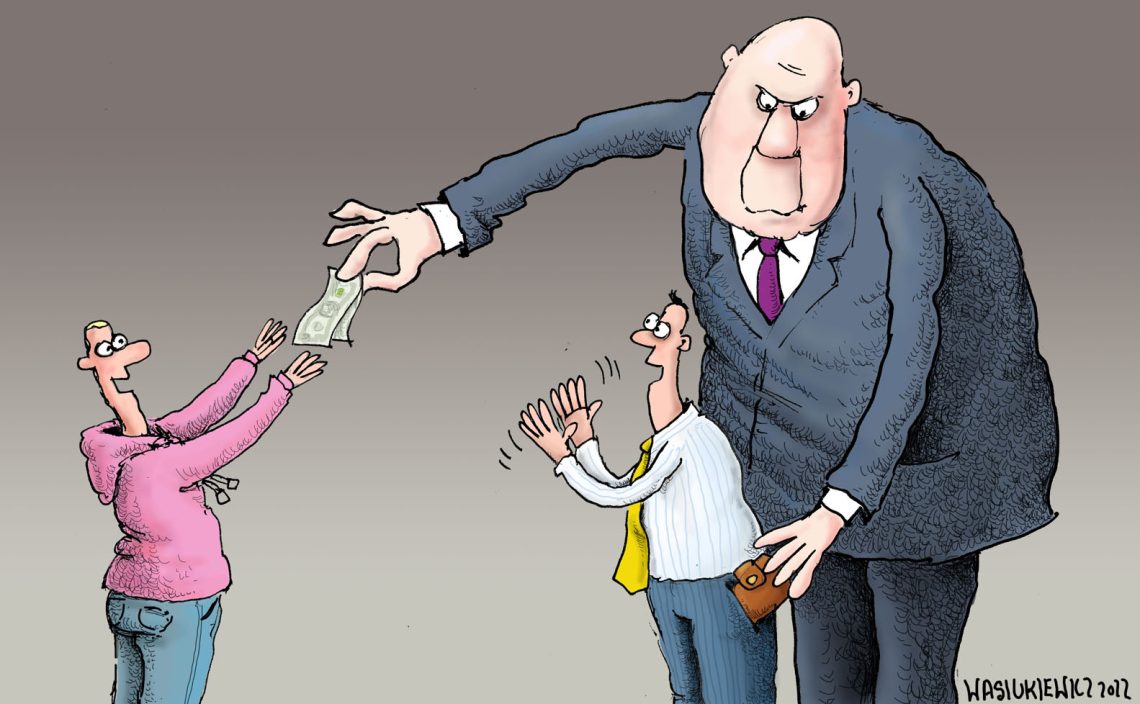Inflation: A marker of corrupt systems
The current inflation levels are the result of a gradual corruption of political systems.

Governments’ irresponsible fiscal policies and the monetary measures of central banks, in clear breach of statutory law, have long been paving the way for inflation. Such dangerous practices have been taking place in democratic and authoritarian regimes all over the world. They are the result of populist tactics from politicians seeking approval from their clientele.
Dangerous gift
The appalling consequence of all this is that political systems have bought voters with their own money. This form of corruption takes place through redistribution. A classic example of this is: take money from Peter (the alleged rich) and give it to Paul. Paul (the majority) is grateful and votes for those who give him money. However, Peter is the one who invests in the economy, either by working harder or thanks to savings, and therefore in such situations, capital is taken out of the economy and economic activity is adversely affected because of wrong incentives.
Governments and administrations, whose function should be to provide services to citizens, have rather taken on the role of an authority figure that watches and controls the population, all under the guise of benevolence. But most often this “benevolence” amounts to buying votes in democracies or boosting regime approval in autocracies.
Politicians have so far preferred to ignore or minimize the problem, since the austerity measures needed to solve the issue would take away the tool to appease voters with money.
Former British Prime Minister Margaret Thatcher once said the problem with socialism is that “you eventually run out of other people’s money.” And here we are now. Over the last 20 years, both conservative and liberal parties have joined the social democrats in resorting to populism and started implementing socialist policies. And then, more recently, short-term politics began dictating central banks’ actions. This started with measures like zero-to-negative interest rates and quantitative easing to release an unlimited flood of money. In parallel, some economists began promoting Modern Monetary Theory, stating that governments can incur unlimited debt without adverse consequences. These claims defy all empirical economic science and sheer common sense – they are no more than fraud.
Inflation was the unsurprising result. Asset inflation has long been rocketing, but the trend went unnoticed because the focus is on consumer price indexes (CPI). But suddenly, with supply chain problems CPIs started to rise rapidly in the United States and Europe.
Complete corruption
Inflation is a hidden tax. It affects every layer of society. It leads to misery and unrest.
This is an issue that has to be addressed. Politicians have so far preferred to ignore or minimize the problem, since the austerity measures needed to solve the issue would take away the tool to appease voters with money. But this money is not a gift from a “benevolent government,” it is capital that is being misappropriated from others.
In the U.S., the Federal Reserve has at least acknowledged the issue and is starting to tighten the money supply. Six months ago, the European Central Bank (ECB) declared that inflation would be kept in the desired two percent range. Now CPI inflation in the eurozone exceeds 5 percent. Christine Lagarde, ECB President, and main guardian of the stability of the euro, is trying to lull the public by declaring this is a momentary phenomenon, caused by short-term supply chain problems. She claims this will not trigger the wages-price spiral that normally drives inflation. But she hypocritically omits to mention the other underlying reasons for inflation, like huge public deficits and irresponsible overspending. And wages will have to increase.
The situation requires honesty and common sense. But they are in short supply.
Europe is clinging to its illusions and the public is being misled by governments and the Central Bank. Green economy, global warming and Covid relief have provided perfect excuses to continue this madness. It is possible that Ms. Lagarde does not realize what she is doing – her past experience is in politics, not in central banking. She may be insufficiently familiar with the principles of monetary and fiscal policy, or overly concerned with preserving the current political power setup, at least in the short term. After all, her own appointment was political. Let us assume this is what lies at the heart of the problem – rather than a coordinated attempt to establish a centralized technocratic system that will harm market efficiency, and limit prosperity and individual freedom. But the end result remains the same. European democracies are on the path to complete political corruption. And the ECB is leading the way.
